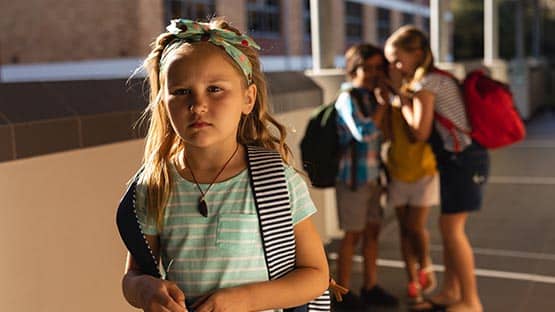
There is a lot of pressure on school systems to not just provide education, but to make sure all of the needs of children are met.
Schools throughout the nation are finding that education goes beyond teaching core subjects in the classroom. Before a child is ready to learn, their overall needs must be met … i.e. if a child is hungry, wearing dirty clothes, are homeless, and perhaps in need of mental health support.
“Our society has decided that the schools should be the support for everything,” said Ryan Barber, assistant superintendent for Waynesboro Public Schools. “That is challenging at times, because sometimes I have these conversations, and I think, OK, so I went to school to be an educator, and so when I think about educating, that’s math and science and social studies and reading.
“I think the thought now, and kind of the perspective that I have now that probably changed from when I went to school, is that we’ve got to educate the whole child. I’ve got to get all of that stuff squared away and those basic needs have got to be met before we can access the education.”
Part of educating the whole child involves evaluating each student’s mental and behavioral health.
The makeup of school faculty is different than what many of us had growing up with school counselors, psychologists, RNs and social workers looking out for students’ well-being.
Waynesboro Public Schools also offer outpatient counseling services and therapeutic day treatment to students during the school day through two agencies: Elk Hill and Valley Community Services Board.
The latest numbers from WPS show 45 students receiving school-based outpatient services through VCSB; and 33 students receiving treatment from Elk Hill. Seven students are in the referral or enrollment process now.
“Instead of having to go to another location, their clinician is coming to our school,” said Barber. “It helps our families because they’re not having to leave work and take their child to a counseling appointment.”
Barber said families tell staff they appreciate the confidentiality offered in the appointments. The school division doesn’t get notes from the session. The only reason that the school would know what was discussed is if the student was threatening injury to themselves or others.
In addition to the school-based outpatient counseling, there is also therapeutic day treatment available primarily for children who have Medicaid and are struggling with behavioral issues.
With the day treatment, there is an embedded clinician at the school, and often, there are multiple contacts during the day to check in and offer support to make sure the students are making progress toward goals.
Despite schools offering more services, Barber said he “would like to see some parents step up and take more ownership of their child.”
Barber said that the school system has mostly supportive parents, but there are certainly some exceptions.
“There’s just some kids that are really raising themselves,” he said. “What I have found is that even in the most difficult situations that we have to work with families on, I cannot think of a family who actively wanted bad things for their kids.”
Some parents, he said, just want to keep food on that table and keep a roof over their heads. They are working multiple jobs and sleeping for a few hours in between. In these cases, teachers and administrators sometimes see the children more than their own parents.
“It’s a responsibility. They’re our kids. They’re Waynesboro kids, and we want to take care of them,” Barber said. “We want to partner and work with them actively to be successful and graduate. There are some families who just don’t have the capacity to do that because of where they are in their life, and so we gladly do it.”
Related stories
No safety net: Families desperate, experiencing homelessness in Waynesboro
Eligible students in Waynesboro receiving mental health treatment, counseling
Waynesboro Schools provides mental health support for students amidst pandemic
Tim Kaine ‘trying to understand’ dramatic shift in youth access to mental health care in Virginia
Virginia aims to address mental health, behavioral challenges facing students
VT students analyzing Reddit to better understand mental health, prevent suicide
University partnership to provide greater mental health support to students
The mental health pressures that student-athletes face: The pressures we all face










